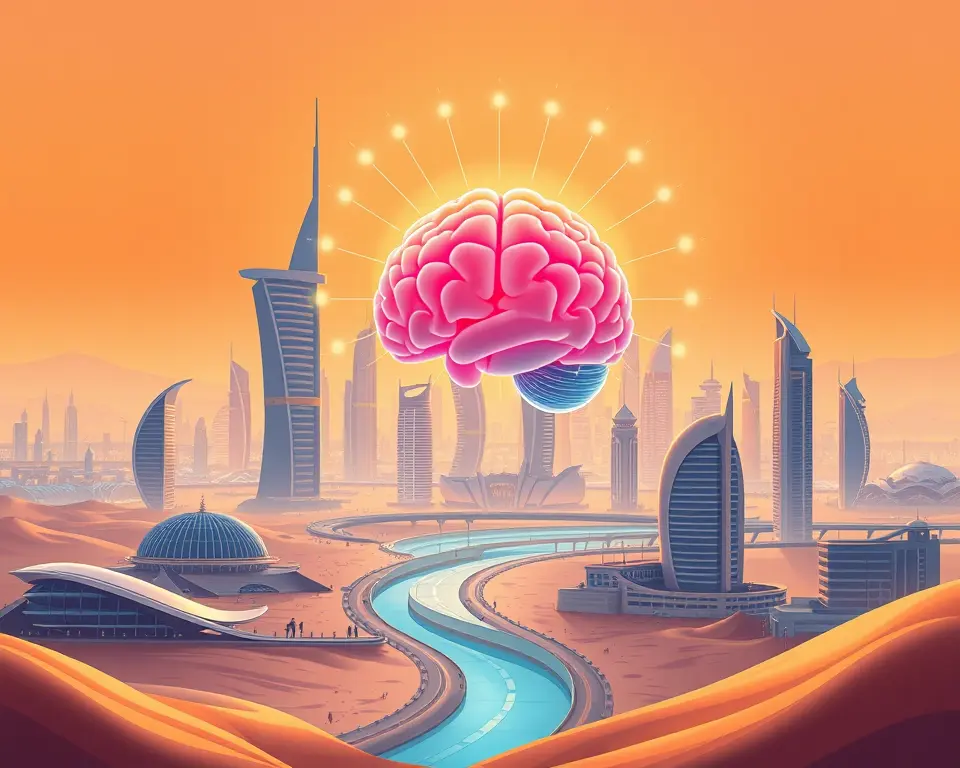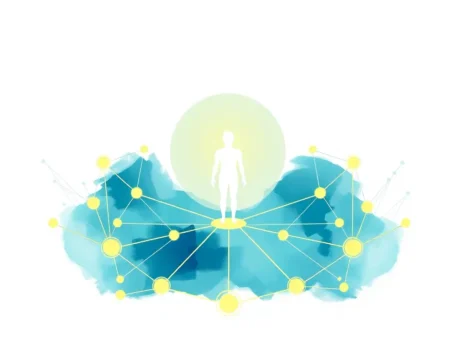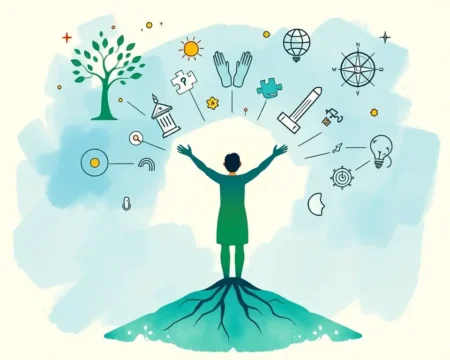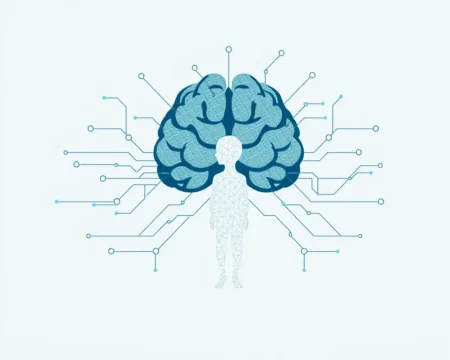Dubai is poised to unveil a new self-help application leveraging artificial intelligence (AI) to bolster the mental well-being of its residents. This initiative is a key component of Dubai’s broader Mental Wealth Strategy, aimed at transforming mental healthcare and destigmatizing psychological well-being within the emirate.
Pioneering Mental Health Through Technology
The Dubai Health Authority (DHA), under the guidance of Sheikh Hamdan bin Mohammed bin Rashid Al Maktoum, has championed the Mental Wealth Framework since its launch in July 2024. This framework aligns with the Dubai Social Agenda 33 and prioritizes raising awareness, promoting early prevention, ensuring accessibility to mental health services, and fostering innovation in the field.
AI-Driven Self-Help App
A significant highlight of the Mental Wealth Strategy is the impending launch of an AI-powered self-help app before the end of 2025. Dr. Maryam Thani Al Mheiri, a member of the Public Health Protection Department at DHA, revealed that this app is designed to enhance mental well-being by providing users with daily strategies, tips, techniques, and lifestyle habits that promote mental resilience.
App Functionality
The app is designed as a mental well-being enhancement tool, offering self-care techniques to help individuals manage stress and improve their overall mental wealth. While it is not intended as a diagnostic tool, it aims to empower users with resources for self-management and emotional support.
Training GPs to Detect Mental Health Red Flags
Recognizing that many individuals initially seek medical advice for physical ailments without addressing underlying mental health concerns, the DHA has implemented a screening guideline for general practitioners (GPs) and family physicians. As part of this initiative, 125 physicians have already received training to identify mental health red flags in patients consulting for unrelated physical health issues.
Dubai’s Mental Wealth Strategy: A Comprehensive Approach
The introduction of the AI-powered app is just one facet of Dubai’s ambitious Mental Wealth Strategy. This comprehensive plan includes several key components:
Doubling Mental Health Specialists
Dubai aims to double the number of mental health specialists in the emirate. This will ensure that more trained professionals are available to provide support and treatment to those in need.
Increasing Psychiatric Beds
The strategy also includes a plan to increase the number of psychiatric beds by 46%. This expansion will provide more inpatient care options for individuals with severe mental health conditions.
Expanding Mental Health Insurance Coverage
Another crucial aspect of the strategy is to expand mental health insurance coverage. This will make mental healthcare more accessible and affordable for a larger segment of the population.
Anti-Stigma Campaigns
The DHA is actively working to reduce the stigma surrounding mental health through public awareness campaigns and open conversations. These initiatives aim to create a more supportive and understanding community where individuals feel comfortable seeking help.
The UAE’s Broader Commitment to Mental Health
Dubai’s Mental Wealth Strategy is part of a broader movement in the UAE to prioritize mental health and well-being. Several initiatives at the national and emirate levels demonstrate this commitment:
Mental Wealth Framework
The Mental Wealth Framework, with a budget of AED 105 million, is a five-year plan that emphasizes early detection, intervention, and prevention strategies for mental health issues. This framework aims to establish Dubai as a leading global destination for living, working, and visiting by aligning with Dubai Social Agenda 33’s objectives.
National Campaign for Mental Support
The UAE launched the National Campaign for Mental Support in response to the COVID-19 pandemic. This campaign aimed to provide support and resources to individuals struggling with mental health challenges during the crisis.
Mental Health AE
Mental Health AE, founded in 2019, has become a prominent platform for raising awareness and providing support for mental health in the UAE. The initiative has organized numerous events, created a podcast series, and fostered a community where individuals can share their experiences and seek help.
AI in Mental Health: Global Trends and Applications
Dubai’s adoption of AI in mental healthcare aligns with a growing global trend. AI-powered mental health apps are becoming increasingly popular, offering a range of features and benefits:
24/7 Availability
AI-powered apps can provide 24/7 access to mental health support, offering immediate assistance whenever needed. This can be particularly beneficial for individuals who struggle to access traditional therapy services due to time constraints or geographical limitations.
Personalized Support
AI algorithms can analyze user data to provide personalized recommendations and support. This can include tailored exercises, coping strategies, and resources based on individual needs and preferences.
Mood Tracking and Analysis
Many AI mental health apps include mood tracking features that allow users to monitor their emotional state over time. AI algorithms can analyze this data to identify patterns and triggers, providing valuable insights for self-management.
Chatbots and Virtual Assistants
AI-powered chatbots can engage users in conversations, offering emotional support, guidance, and cognitive behavioral therapy (CBT) techniques. These chatbots can provide a safe and anonymous space for individuals to express their feelings and receive support.
Examples of AI Mental Health Apps
Several AI mental health apps are already available and gaining popularity worldwide:
- Wysa: An AI-powered mental health companion that offers 24/7 anonymous emotional support through evidence-based techniques.
- Woebot: An AI-driven chatbot that employs cognitive-behavioral therapy methods to assist users in managing their mental health.
- Youper: An AI mental health companion that delivers personalized support through natural conversations.
- Ollie Health: Offers 24/7 access to an AI mental health coach for personalized support.
- Manifest: An AI-powered app that helps Gen Zers cultivate daily mental health habits through gamification.
Benefits of AI in Mental Health
The use of AI in mental health offers several potential benefits:
- Increased Accessibility: AI-powered apps can make mental healthcare more accessible to individuals who face barriers to traditional services.
- Personalized Care: AI algorithms can tailor support to individual needs and preferences, enhancing the effectiveness of treatment.
- Reduced Stigma: Anonymous AI-powered support can reduce the stigma associated with seeking mental healthcare.
- Early Intervention: AI can detect early signs of mental health issues, enabling timely intervention and prevention.
- Cost-Effectiveness: AI-powered apps can provide cost-effective mental health support, reducing the financial burden on individuals and healthcare systems.
Ethical Considerations and Challenges
While AI offers significant potential for improving mental healthcare, it also raises ethical considerations and challenges:
Data Privacy and Security
AI mental health apps collect sensitive personal data, raising concerns about privacy and security. It is crucial to ensure that these apps comply with data protection regulations and employ robust security measures to protect user information.
Bias and Fairness
AI algorithms can be biased if trained on non-diverse data, leading to unequal access to care or misdiagnosis for individuals from underrepresented backgrounds. It is essential to address bias in AI algorithms to ensure fairness and equity.
Over-Reliance on AI
While AI can offer valuable support, it cannot replace the empathy and personal connection that can only be found with a human therapist. It is important to use AI as a tool to enhance, not replace, human interaction in mental healthcare.
Lack of Professional Oversight
Some AI mental health apps operate without professional oversight, raising concerns about the quality and safety of the support provided. It is crucial to ensure that AI-powered interventions are evidence-based and supervised by qualified mental health professionals.
The Future of Mental Health in Dubai and Beyond
Dubai’s commitment to integrating AI into its Mental Wealth Strategy represents a significant step forward in transforming mental healthcare. By combining technological innovation with a comprehensive approach to prevention, early intervention, and access to care, Dubai is positioning itself as a leader in promoting mental well-being. As AI technology continues to evolve, it is likely to play an increasingly important role in shaping the future of mental healthcare, both in Dubai and around the world.










